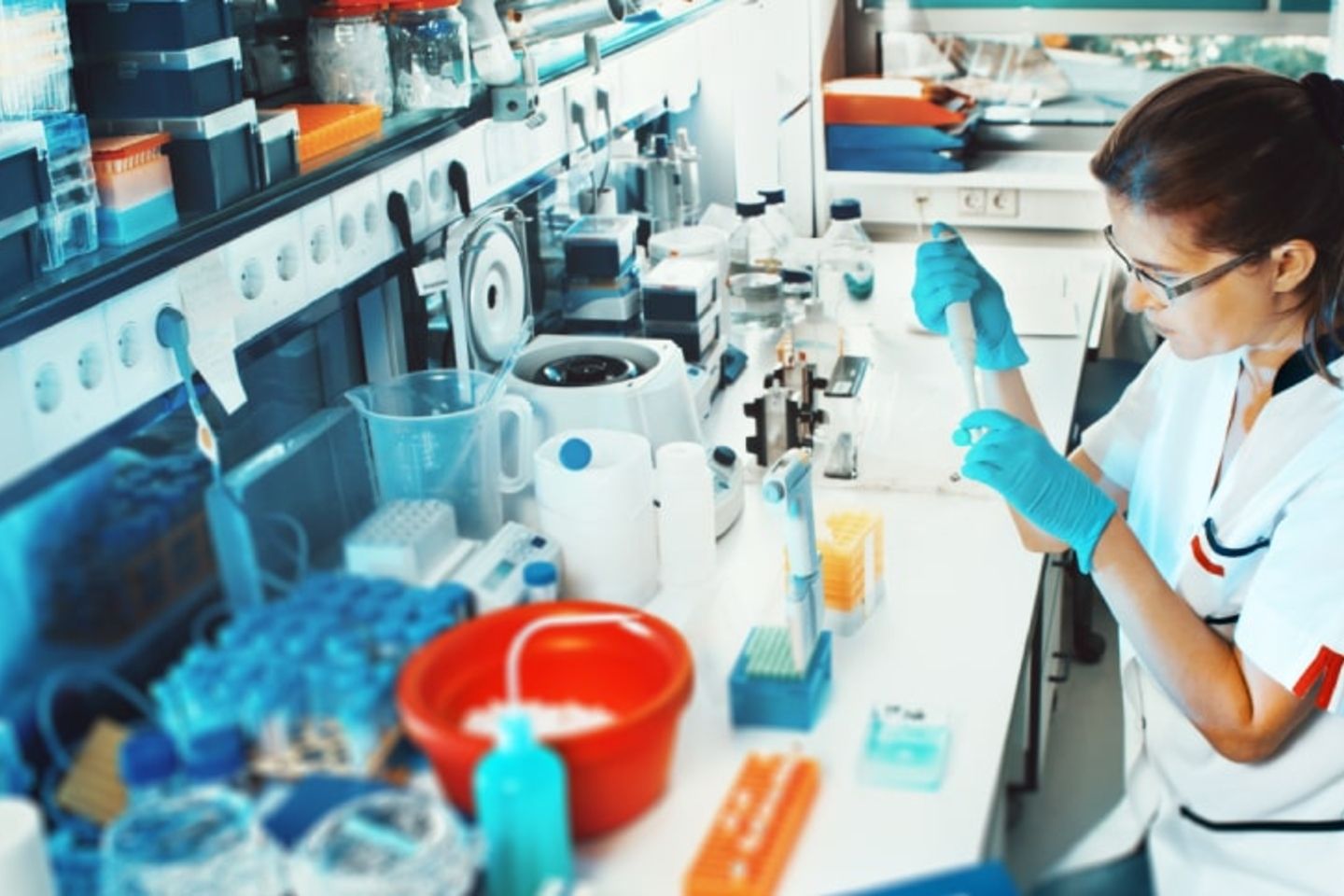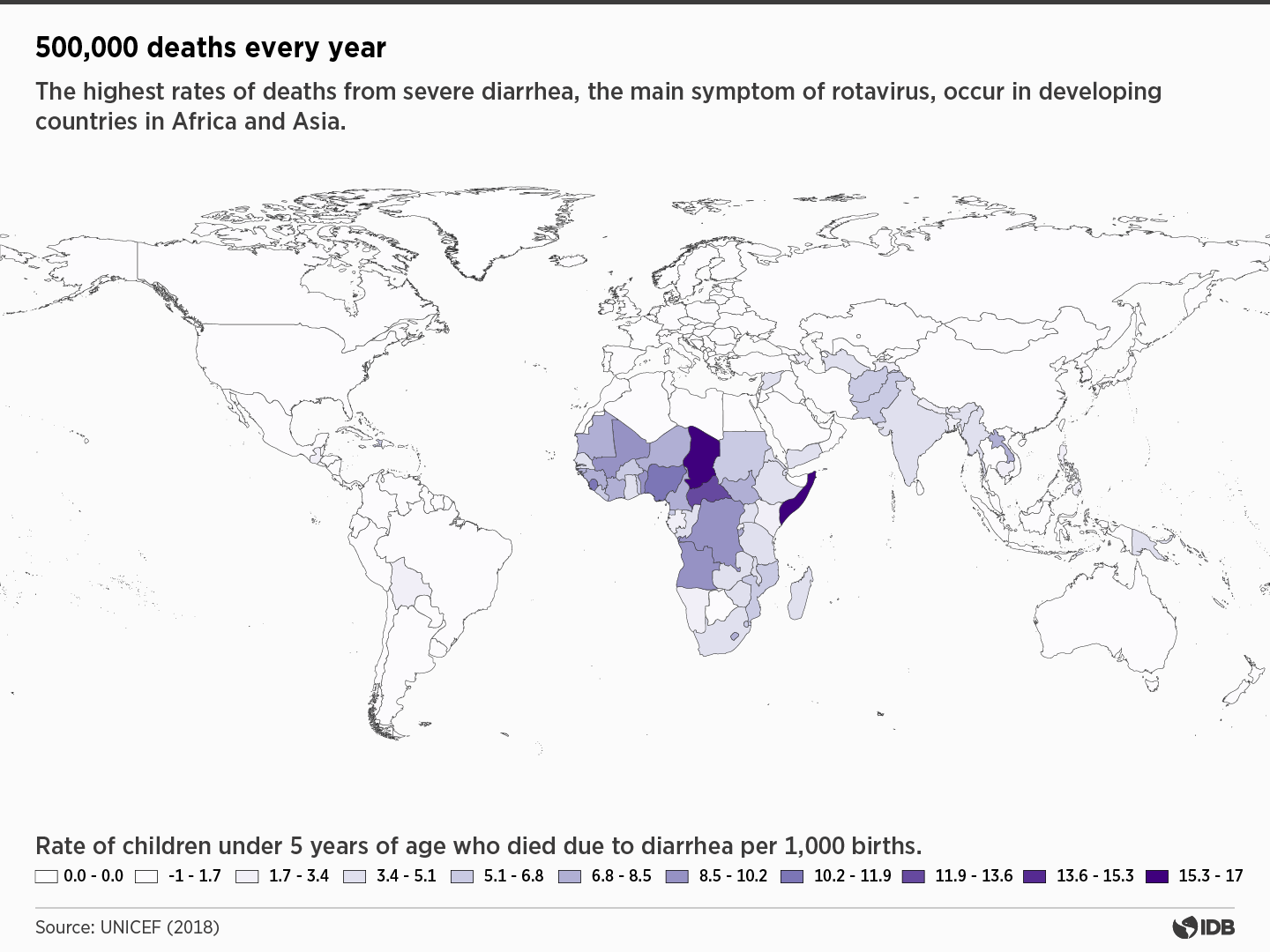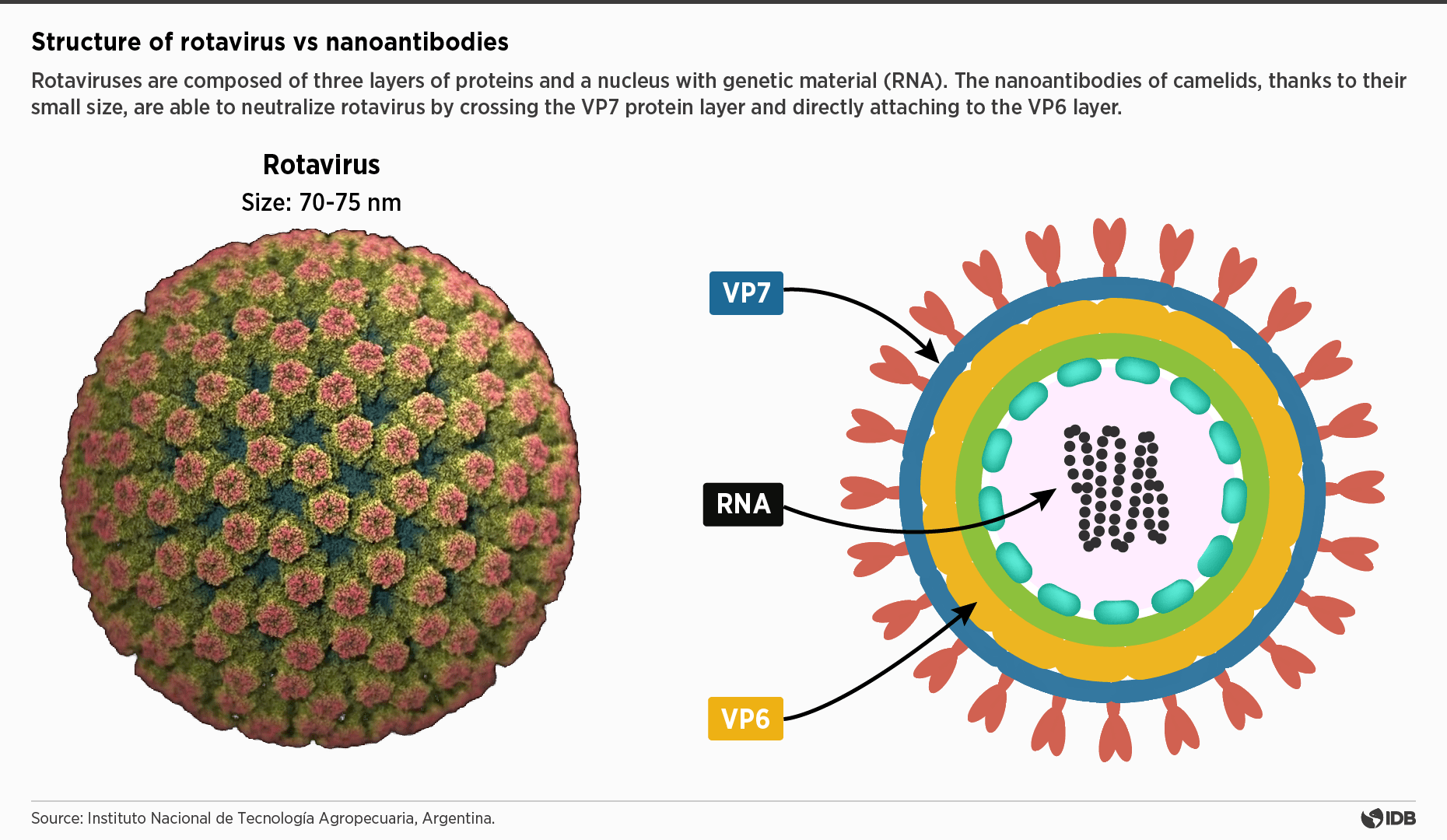
Ever heard of rotavirus? It’s a contagious virus that can wreak havoc on the intestines of children up to five years old. It is also the most frequent cause of severe diarrhea in infants and, in acute cases, can require hospitalization.In 2017 alone, it caused an estimated 500,000 child deaths worldwide.

Vaccines can effectively prevent rotavirus from spreading, but no treatment is available to neutralize it after it’s struck. At least not until now.
Alas, researchers have found an antidote in llamas.
Once infected, the human body sends out antibodies fight the infection by attaching themselves to the most superficial outer layer of the virus. But, much like the flu, this layer changes year after year and from species to species, limiting the effectiveness of the antibodies.
In an unexpected discovery, researchers at the National Institute of Agricultural Technology (INTA) in Argentina found that camelids, which also get rotavirus, offered clues about how to battle it. The animals have unusually small antibodies known as nanoantibodies, or VHH, that can penetrate the virus’s outer layer and debilitate it.

After 14 years of work, INTA researchers developed a platform to create camelid-based nanoantibodies that can neutralize rotavirus variants in humans. "They are the smallest particles that exist in nature, capable of recognizing and neutralizing others," said Viviana Parreño, head of INTA’s Diarrheic Virus Laboratory in Castelar, Argentina.
The same platform could open the door for the production of other nanoantibodies and the creation of immunotherapies against other diseases.
"Today we have VHH for several viral agents with an impact on human, animal and plant health, including rotavirus A, norovirus, influenza A, bovine viral diarrhea virus and fourth maize river virus," said Parreño.
The approach to using nanoantibodies to treat rotavirus, which is patented in Argentina, was chosen as the top patented technology of the past five years in Latin America by PROSUR, an entity that recognizes intellectual property and technological development.
Video: getting the nanoantibodies from camelids in Argentina (in Spanish)
The cow of the future will be Argentine
Rotavirus vaccines are effective but have some limitations. The World Health Organization recommends that they not be administered to immunosuppressed children. In addition, the vaccines require constant refrigeration, making it hard to distribute them in rural areas lacking electricity.
Yet, nanoantibodies are versatile in that they retain their functional properties in high temperatures and in both alkaline and acidic environments. As a result, researchers decided to develop a transgenic cow capable of producing milk that includes the antibodies, thinking this could provide an easy way for infants and small children to ingest the antibodies. To achieve their goal, INTA partnered with three Argentine biotech companies—Biosidus, Establecimiento Lácteo San Marcos and Aproagro—and asked for help from Argentina’s National Scientific and Technological Promotion Agency.
The agency, which gets funding from the Inter-American Development Bank (IDB), seeks to strengthen the link between the science, tech sector and productive sectors to foster innovative solutions to society’s challenges.
Learn how #biotechnology can help protect crops from #diseases and improve their nutritional performance https://t.co/WBIqHYIHMI pic.twitter.com/9uscLNiJgg
— Inter-American Development Bank (@the_IDB) November 6, 2017
"We see that all this investment in science and technology generates concrete results in the training of specialized talent, the development of new scientific knowledge, and the emergence of new products and innovative services,” said Pablo Angelelli, leading specialist in the IDB's Competitiveness, Technology and Innovation Division. “This in turn translates into solutions that improve the quality of life of the population and a better performance of companies and the economy in general,” he added.
The project was submitted to the call of Functional Foods of the Sectorial Argentine Fund (FONARSEC) and obtained financing to develop functional dairy foods containing VHH in its formulation and, in this way, to be able to immunize the children of rotavirus.
"If we can develop a transgenic cow that includes these nanoantibodies in its milk, we could pasteurize that milk and give it to a baby to protect it," said Parreño.
Since 2009, the Inter-American Development Bank has deployed US$750 million in financing to support technological innovation programs in Argentina.
If you want to know more, you can download for free our publication The policy of Innovation in Latin America and the Caribbean - New Roads.
You can also visit our Innovation blog, Puntos sobre la i, here.